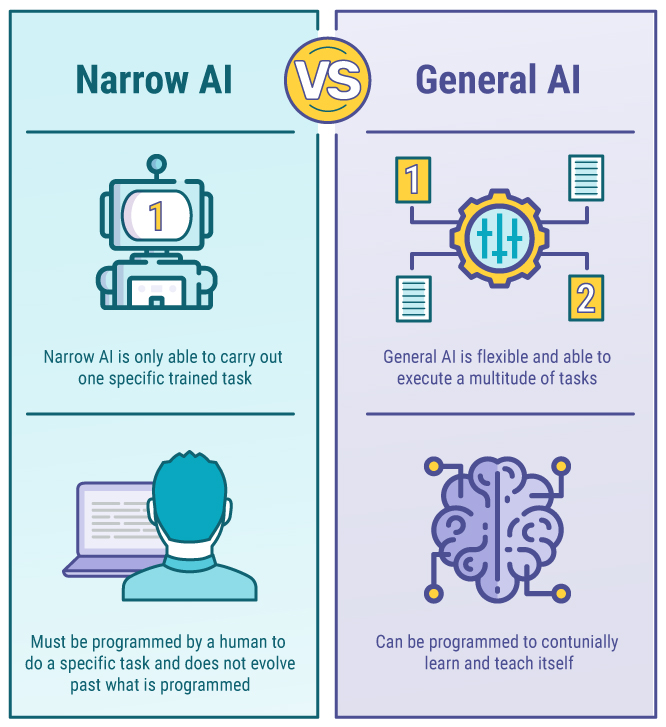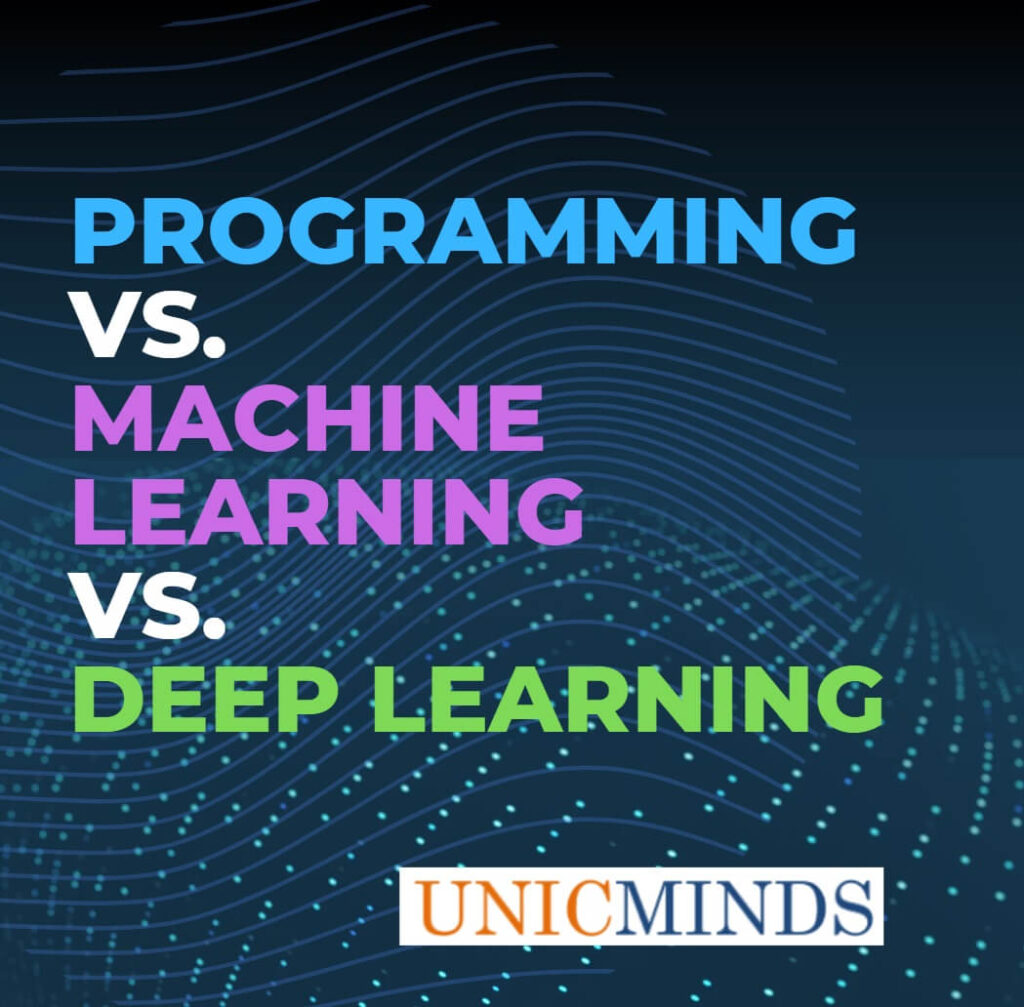AI can be broken into two broad categories – narrow AI and general AI. Narrow AI is more like solving a fixed problem (in multiple possible ways, of course) using a set of programs pre-written and supervised-training. You can still argue on Narrow AI that how is it intelligence when you’re still programming and training it in almost every way. General AI is more human-like and is what we use when we absolutely are in a novel situation. We use our pure survival code and intelligence to navigate a situation like that. True AI has to be more general; Of course, narrow AI when aggregated over time can help in General AI becoming more effective but there is a jump that is required. We all know Narrow AI has made a lot of progress because you eventually have to write a program with a fixed goal there and improve it towards its goals. But the more interesting question is: What’s happening on General AI? In this post, we shall focus more on what’s happening in the General AI world.
Google’s DeepMind division has set out to carve a path for General AI. DeepMind technology has been challenged to learn games on its own. For example, when it was tasked to beat the library of Atari games, it learned to understand the games without changing the code. After a time, the AI could play the games better and with more efficiency than humans.
Google introduces a self-improving AI agent for robotics, RoboCat, that learns to perform a variety of tasks across different arms, and then self-generates new training data to improve its technique. RoboCat learns much faster than other state-of-the-art models. It can pick up a new task with as few as 100 demonstrations because it draws from a large and diverse dataset. This capability will help accelerate robotics research, as it reduces the need for human-supervised training, and is an important step towards creating a general-purpose robot.
This AI uses deep learning on a convolutional neural network, with a model-free reinforcement learning technique called Q-learning. While the idea of general purpose AI is controversial, Google set out to establish and improve their AI property on a wide variety of grounds. The RoboCat team says, “Our long term aim is to solve intelligence, developing more general and capable problem-solving systems, known as artificial general intelligence (AGI). Guided by safety and ethics, this invention could help society find answers to some of the world’s most pressing and fundamental scientific challenges.”
The researchers don’t tell the robot how to complete the task, they simply equip it with sensors (which are initially turned off) and let it fumble around until it gets things right. This robot which is fumbling with a set of blocks is not following any program or doing something it is designed for.
If Google’s Deep Mind or other companies can together solve this problem, then the world will change forever. And it all starts with a robot arm learning how to play with blocks by itself. Watch the below video to get an overview of the future adventures in AI embarked upon by humanity.
Hope this is useful, thank you.
You may like to read Programming vs. Deep Learning vs. Machine Learning.



